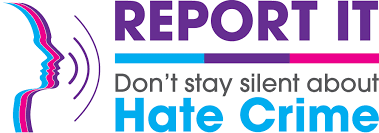Hate Crime Details – Valerie Jenness
To put it in the most intelligible form, hate crime is a prejudice-based crime which is often violent. It is tagged “hate” crime because it is believed to be done out of hatred for the victim. But in reality, the hatred also has an element of envy. Most times the victim usually possesses something or some quality that perpetrators never have.
A very common instance is when a couple of bad students gang up to attack another student probably because he is academically superior or because he is the favorite of a lot of female students. Hate crime is also referred to as a bias-motivated crime. Sometimes the perpetrators attack the victim because of his or her membership or perceived membership of a group.
Some of Hate Crime Details could be sexual orientation, religion, nationality, ethnicity or even gender. Sometimes these haters take non criminal actions when pushed by any of these reasons. This type of action is called a bias incident.
US Court System has made hate crime laws to protect citizens against such crimes. Even though these laws vary slightly in different states, they all consider characteristics like disability, gender identity, sexual orientation, gender, race, religion, ethnicity and nationality of both the perpetrators and victims in the adjudication of hate crime cases.
It is usually advisable to report hate crimes and hate incidents because you may be preventing these incidents from either happening to you or someone you love. Apart from that, when you report a hate crime it helps the cops to figure out the extent of the crime in your locality or community and begin to curtail it.
The US Court System has placed several tough penalties for hate crime convicts. Hate crime statutes are geared towards increased punishment once it can be established that the victim of the attack was singled out because of his or her personal characteristics – The ones listed above.
Hate crime details and laws are very important and they should always take their course. This is because when a hate crime occurs without being addressed the victim or his/her locality or people with similar characteristics (depending on what motivated the crime) that feel concerned may decide to take reprisal attacks since attacks beget attacks. And if not curbed, it could lead to a vicious cycle of attacks that may lead to communal or group clash and this leads to wanton destruction of properties. Needless to say inter-group tension and violence are very difficult to contain. It is better to prevent it totally with the enforcement of hate crime laws.
There are challenges with prevention of hate crimes. One of them is that some precursory actions to hate crimes are not treated as crimes. For instance, since there is freedom of speech in the United States and several parts of the world, making a hate speech is not regarded as a criminal act. This is why some religious leaders openly preach against people with certain sexual orientation and still get away with it. It is this kind of sermon that must have motivated the terrible Orlando massacre the led to the death of over 45 people on 12th June, 2016.
Preaching is not a criminal act but not when the message pits one group of people against another. Like the saying goes … if you can manipulate a man’s mind, you don’t have to bother about his actions. The world needs to be sensitized on the likely consequences of hate crimes as the cases are becoming disturbingly too many.
This is why the new federal hate crime statute has to be taken more seriously. The Matthew Shepard and James Byrd, Jr. Hate Crimes Prevention Act allows federal government to render assistance in the investigation and prosecution of hate crimes especially when a locality is unwilling or unable to investigate and prosecute. Sometimes the government of a locality may thwart a hate crime case if the perpetrators are highly influential people within the locality.
The statute also ensures the criminals who attack their victims because of personal characteristics or affiliation to certain group are all covered by the law. Due to the high rate of hate crimes the bill got the support of over 250 civil rights, civic, professional, educational, religious organizations. Even almost every major law enforcement organization in United States also supports the bill.
Right now, there are three types of laws criminalizing hate crimes
- Laws that protect the attack of institutions like burning a church
- Laws that protect people from being attacked because of their membership or affiliation to a certain group
- Laws that enforce the appropriate penalties once a case has been successfully established as a hate crime
According to US Court system, hate crimes are punishable by sending the perpetrators to about 10 years in prison or even a death penalty depending on the seriousness of the crime. In addition to that people who commit hate crimes can be sued in civil court and asked to pay appropriate damages to the victim(s).
It is usually very difficult to prove beyond reasonable doubt that an attack was motivated by personal characteristics of the victim(s) so if you are a victim of a hate crime your best option is to seek the services of a competent lawyer.
This is where Valerie Jenness can be of assistance. She is an authority in hate crime laws. She is a professor in the Department of Criminology, Law and Society at the University of California. She also conducted impressive work on hate crime and many more. Her experience on hate crime laws is what makes her one of the best people to consult for a hate crime case.

